Transatlantic Perspectives on Quantum Science and Technologies - 10 Years University of Cologne NY Office
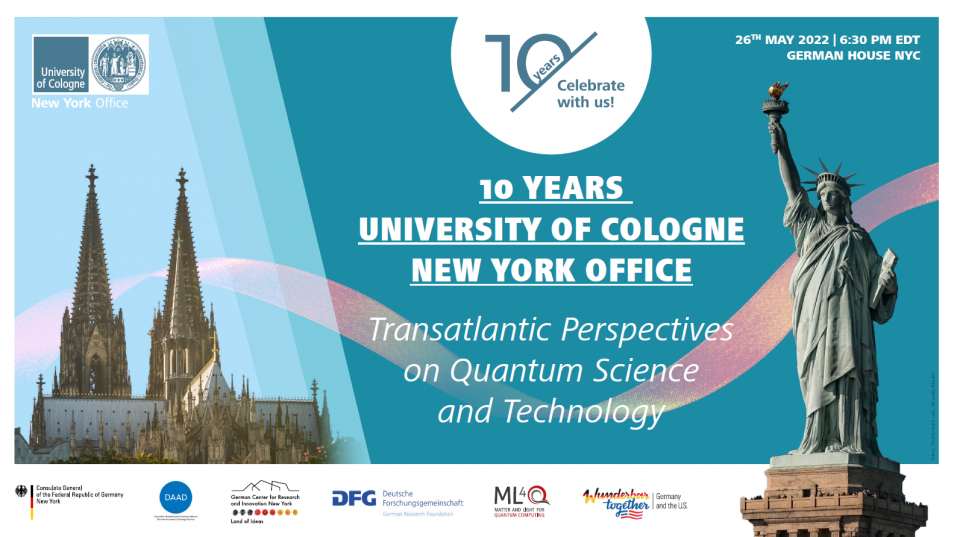
The University of Cologne’s North America Office celebrates its 10th anniversary with a festive in-person event at the German House, featuring art, music, networking, and the panel discussion “Transatlantic Perspectives on Quantum Science and Technologies.” On this occasion, we are honored to welcome a delegation from the University of Cologne, led by Rector Prof. Dr. Dr. h.c. Axel Freimuth.
The panel will highlight the University’s Research Cluster of Excellence “Matter and Light for Quantum Computing” (ML4Q) and its partner institutions in Germany and the U.S. The cluster develops state-of-the-art computing and networking architectures using the most recent findings from fundamental research in solid-state physics, quantum optics, and quantum information science.
Scientists have theorized about the potential of quantum computing for decades. But only in recent years have private and public sector investments in the development of quantum technologies grown significantly. Rapid advances in quantum technologies could revolutionize the world as we know it – from genomic sequencing to transport route optimization, from code-breaking to artificial intelligence.
Join us on May 26th at 6:30 PM (EDT) to:
- Hear perspectives from both sides of the Atlantic on quantum research, competition, and collaboration in the international quantum arena
- Learn what quantum technology can do for you and why taxpayer money should be invested in quantum technologies
- Experience University of Cologne’s Cluster of Excellence research first-hand
- Refresh your German-American connections and explore new collaborations
- Enjoy music, art, and a networking reception following the panel
Please note that all attendees must show proof of vaccination upon arrival and wear masks during the event.
The event is co-hosted by the University of Cologne New York Office, the German Consulate General New York, the German Research Foundation (DFG) North America, the German Academic Exchange Service (DAAD) New York, the Cluster of Excellence Matter and Light Quantum Computing (ML4Q), Wunderbar Together, and the German Center for Research and Innovation (DWIH) New York.
Link to the picture gallery of the event (Photo Credit: Nathalie Schueller)
Event Recording
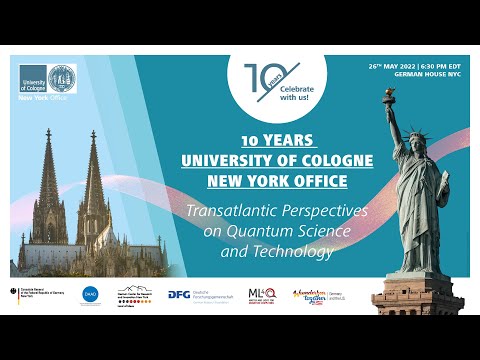
To play the video, click the thumbnail. Once activated data will be transmitted to the respective provider. Watch on YouTube
Event Details for In-Person Attendees
COVID-19 precautions: We ask that guests show full proof of vaccination. Please bring a vaccination card and face mask with you on the evening of the event.
Livestream and Recording
The panel was livestreamed on YouTube for anyone who wished to tune in remotely and the recording is available on the University of Cologne YouTube channel.
Event Information
May 26, 2022, 6:30 PM to 8:30 PM
German House, New York City
Organizer(s): University of Cologne New York Office, German Consulate General New York, German Research Foundation (DFG) North America, German Academic Exchange Service (DAAD) New York, Matter and Light Quantum Computing (ML4Q), Wunderbar Together, German Center for Research and Innovation (DWIH) New York
Our Experts
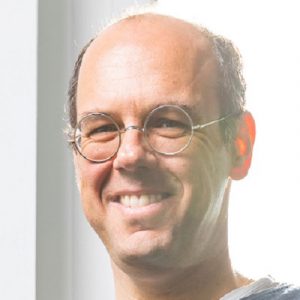
Tommaso Calarco has pioneered the application of quantum optimal control methods to quantum computation and to many-body quantum systems. Currently the Director of the Institute for Quantum Control of the Peter Grünberg Institute at Forschungszentrum Jülich and Professor of Quantum Information at the Institute of Theoretical Physics of the University of Cologne, Tommaso received his PhD at the University of Ferrara and started to work as a postdoc in the group of P. Zoller at the University of Innsbruck. He has authored in 2016 the Quantum Manifesto, which initiated the European Commission’s Quantum Flagship initiative, and is currently the Chairman of one of the Flagship’s Governing Bodies: The Quantum Community Network (QCN). In 2020, together with the QCN, he has launched an initiative towards the creation of a consortium of European quantum industries, which has been legally established in 2021 under the name of European Quantum Industry Consortium (QuIC).Prof. Tommaso Calarco, MLQ4, University of Cologne
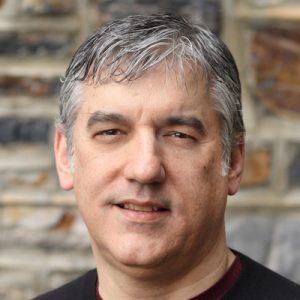
Christopher Monroe is the Director of the Duke Quantum Center at Duke University, Gilhuly Family Presidential Distinguished Professor of Electrical and Computer Engineering and Physics at Duke, and College Park Professor of Physics at the University of Maryland. He is also the co-founder and Chief Scientist at IonQ, Inc. in College Park, MD, a public company that builds quantum computers based on the control of individual atoms. Monroe is an atomic and quantum physicist and engineer, with interests in fundamental quantum phenomena, quantum information science, and quantum computer design and fabrication. Monroe’s research group pioneered most aspects of ion trap quantum computers, making the first steps toward a scalable, reconfigurable, and modular quantum computer system. He is also an architect of the U.S. National Quantum Initiative, and sits on advisory boards for quantum institutes in the U.S., Germany, the U.K., Singapore, and Canada.Prof. Christopher Monroe, Duke University and IonQ Inc.
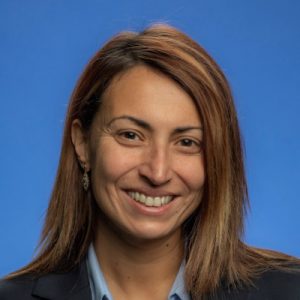
Anna Grassellino is the Director of the National Quantum Information Science Superconducting Quantum Materials and Systems Center, a Fermilab Senior Scientist and the head of the Fermilab SQMS division. Her research focuses on radio frequency superconductivity, in particular on understanding and improving SRF cavities performance to enable new applications spanning from particle accelerators to detectors to quantum information science. Grassellino is a fellow of the American Physical Society, and the recipient of numerous awards for her pioneering contributions to SRF technology, including the 2017 Presidential Early Career Award, the 2017 Frank Sacherer Prize of the European Physical Society, the 2016 IEEE PAST Award, the 2016 USPAS prize and a $2.5 million DOE Early Career Award. She holds a Ph.D. in physics from the University of Pennsylvania and a master’s of electronic engineering from the University of Pisa, Italy.Prof. Anna Grassellino, Director, National Quantum Information Science SQMS Center
Welcoming Remarks
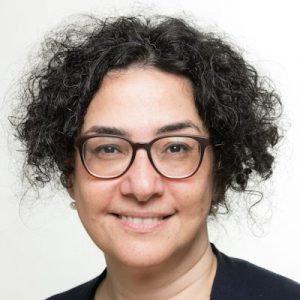
Yasemin Pamuk is a German career diplomat. She joined the German Foreign Office in 2015. In her current position, Ms. Pamuk is head of Cultural Affairs and Science at the German Consulate General New York. Before joining the Foreign Service, from 2010 to 2014, Ms. Pamuk headed the South Caucasus Office of the Friedrich Naumann Foundation in the South Caucasus and worked on development and cooperation projects in Georgia, Azerbaijan and Armenia. From 2006 to 2010, she was research associate at the Berlin Collaborative Research Centre “Governance in Areas of Limited Statehood” and worked as a political advisor for Michael Link, Member of the German Bundestag and Coordinator for the Transatlantic Relations at the German Federal Foreign Office. Ms. Pamuk holds degrees in Middle Eastern Studies and Political Science from the University of Heidelberg and in Turkic Studies from the Université Marc Bloch in Strasbourg.Yasemin Pamuk, Consul for Culture and Science, Consulate General of the Federal Republic of Germany New York
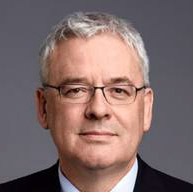
Axel Freimuth was born in Duisburg in 1957. He studied physics in Cologne. After his doctorate and subsequent postdoctoral lecture qualification (Habilitation) in Cologne, he became professor at the University of Karlsruhe in 1996. In 1998, he accepted the Chair for Experimental Solid-State Physics at the University of Cologne. From 1999 to 2000, he was managing director of the Institute of Physics II, and from 2000 to 2002, head of the Department of Physics. From 2002 to 2006, he was the speaker of a Collaborative Research Centre sponsored by the German Research Foundation (DFG). Following a research stay in 2002 at the University of British Columbia in Vancouver, Canada, he was Dean of the Faculty of Mathematics and Natural Sciences from 2003 to 2005. Since April 2005, he has been Rector of the University of Cologne. Since 2007, Professor Freimuth has served as chair of the advisory board of the Max Planck Institute for Plant Breeding Research (Cologne) and as a member of the advisory boards of the Max Planck Institutes for the Study of Societies (Cologne), Radio Astronomy (Bonn), Biology of Ageing (Cologne) and Metabolism Research (Cologne).Prof. Axel Freimuth, Rector, University of Cologne
Partner Spotlights
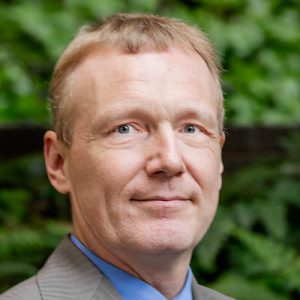
Benedikt Brisch has been Director of the German Academic Exchange Service - DAAD North American regional office and the German Center for Research and Innovation DWIH New York since 2019. He studied history, Slavic languages and political science at the University of Cologne and has been with DAAD since 1998. Among other positions, he was Deputy Director of the DAAD Moscow Office and Head of the Division for Europe and North America at DAAD Headquarters in Bonn, Germany. As director of DWIH in New York, he developed the new "Future Forum" format that brings together researchers and innovators from business and industry in Germany and the U.S. In 2021 he successfully negotiated an agreement between DAAD and IIE for the “Gilman-DAAD Germany Scholarship”. This partnership between the U.S. Department of State’s Benjamin A. Gilman International Scholarship Program and the DAAD supports a wider effort to increase and diversify student mobility among German and American higher education institutions.Benedikt Brisch, Director, German Center for Research and Innovation (DWIH) and German Academic Exchange Service (DAAD) New York
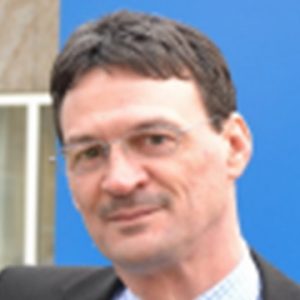
Georg Bechtold is the Director of the North American office of the DFG, the self-governing funding organization for science and research in Germany. Georg has been engaged in the promotion of European and transatlantic research cooperation since he joined the DFG in 2003. Prior to being appointed Director of the DFG’s North American office in June 2020, Georg was in charge of the research fields polymer science, chemical process engineering and technical chemistry within the DFG’s Department of Scientific Affairs. Before joining the DFG, Georg held a Feodor Lynen scholarship from the Alexander von Humboldt Foundation and worked as a postdoc for two years at the University of Sydney in Australia. He is a mechanical engineer by training and earned his doctorate at the Technical University of Kaiserslautern.Dr. Ing. Georg Bechtold, Director, German Research Foundation (DFG) North America
Moderators
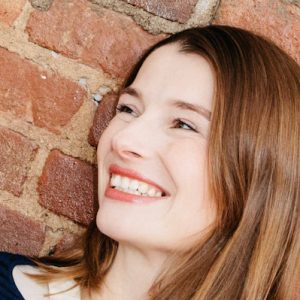
Christina Horsten is an award-winning journalist and co-author of the bestselling book “Stadtnomaden”. She was born in New York and grew up in Bonn, Prague and Berlin, where she earned her PHD at Freie Universität. She has been a correspondent with the German News Agency dpa in New York since 2012.Christina Horsten, New York Correspondent, German Press Agency (DPA)
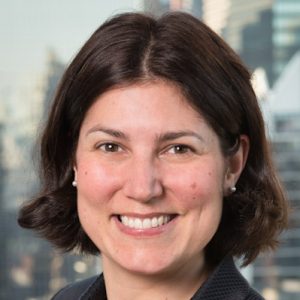
Eva Bosbach is the Executive Director of the University of Cologne New York Office. Born in Prague, she received both her Masters and Ph.D. degree from the University of Cologne. Prior to coming to New York, she was Program Manager at the German Rectors’ Conference in Bonn, Germany, and is author of several comparative studies about doctoral education and the humanities in Germany and the U.S. Dr. Bosbach was awarded NYC Council and NY State Assembly Honorary Citations in 2017 and currently serves on the Boards of the German Centers for Research and Innovation (DWIH) New York and San Francisco.Dr. Eva Bosbach, Executive Director, University of Cologne New York Office
Closing Remarks
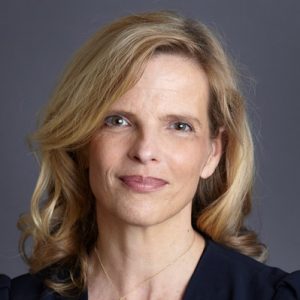
Johanna Hey is a Professor for Tax Law, Director of the Institute for Tax Law and Vice-Rector for International Affairs of the University of Cologne. She is a member of the scientific advisory board of the Federal Ministry of Finance and of the permanent deputation of the German Lawyers’ Conference. In 2020, she was admitted to the North Rhine-Westphalian Academy of Sciences, Humanities and the Arts. From 2004 to 2012, she was a member of the executive board and 1st Vice President of the German Association of University Professors and Lecturers (Deutscher Hochschulverband). Johanna Hey is Global Professor at New York University’s School of Law and was awarded the Hans Kelsen Prize of the University of Cologne in 2016.Prof. Johanna Hey, Vice-Rector for International Affairs, University of Cologne
Artists
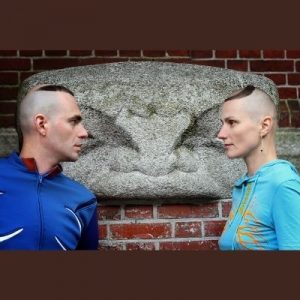
Dmitry Gelfand (b. 1974, St. Petersburg, Russia) and Evelina Domnitch (b. 1972, Minsk, Belarus) create multi-sensory environments that merge physics, chemistry and computer science with uncanny philosophical practices. Current findings, particularly regarding wave phenomena, are employed by the artists to investigate questions of perception and perpetuity. Such investigations are salient because the scientific picture of the world, which serves as the basis for contemporary thought, still cannot encompass the unrecordable workings of consciousness. Having dismissed the use of recording and fixative media, Domnitch and Gelfand’s installations exist as ever-transforming phenomena offered for observation. Because these rarely seen phenomena take place directly in front of the observer without being intermediated, they often serve to vastly extend the sensory threshold. The immediacy of this experience allows the observer to transcend the illusory distinction between scientific discovery and perceptual expansion.Dmitry Gelfand and Evelina Domnitch
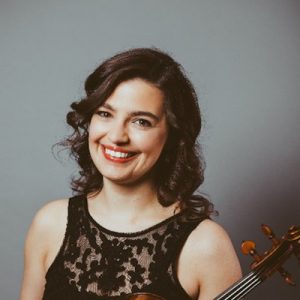
Maren Rothfritz is a passionate artist and educator who is equally at home on the concert stage and in the teaching studio. As violist in the Argus Quartet since 2019, Maren enjoys seeking colorful musical expressions across a wide range of repertoire old and new. From 2016-2018 she was a Fellow with Carnegie Hall’s Ensemble Connect, performing and teaching throughout New York City. Born in Paderborn, Germany, Maren began violin studies at age of four. She moved to the United States in 2014 and is now working towards a Doctorate of Musical Arts at the Graduate Center of the City University of New York, where she was awarded the prestigious CUNY Graduate Center Fellowship. Currently, she teaches at Brooklyn College as a Teaching Fellow, and is on faculty at the annual festival “Point Counterpoint” in Vermont.Maren Rothfritz
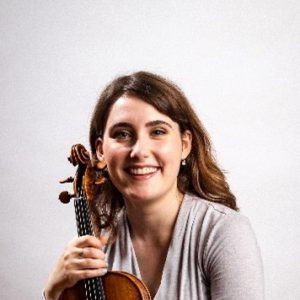
Gergana Haralampieva is a Bulgarian-American violinist and educator passionate about making classical music relevant and accessible. Born into a family of musicians, Gergana was surrounded by music from an early age. She began singing in her father’s children’s choir at the age of three and playing the violin at the age of six. In 2005, Gergana moved with her family to Norwood, Massachusetts and began her conservatory training at New England Conservatory’s Preparatory School and Walnut Hill School for the Arts. Gergana went on to receive her Bachelor’s Degree from Curtis Institute of Music in 2016 and her Master’s Degree from New England Conservatory in 2018.Gergana Haralampieva
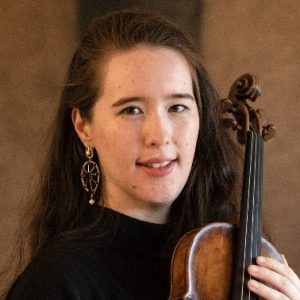
Korean-Australian violinist Harriet Langley is an accomplished soloist and chamber musician who has performed with the London Chamber Orchestra, the Verbier Festival Orchestra, the Vienna Chamber Orchestra, Sinfonia Varsovia, the Reno Philharmonic, the Gyeonggi Philharmonic of Korea, and the Orchestre National de Belgique, to name a few. She is also a founding member of the Terra String Quartet, a vibrant young quartet based in New York City. Harriet has studied with Augustin Dumay at the Chapelle Musicale Reine Elisabeth of Belgium, with Josef Rissin at the Karlsruhe Hochschule fur Musik in Germany, with Patinka Kopec and Pinchas Zukerman at the Manhattan School of Music and at the New England Conservatory, where she received her bachelor’s degree as a student of Miriam Fried and Lucy Chapman. She completed her Master’s degree at The Juilliard School and upon graduation was bestowed the prestigious William Schuman Prize for outstanding achievement and leadership in music.Harriet Langley
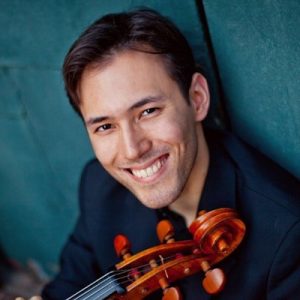
Alan Toda-Ambaras is active as both a soloist and a chamber musician. He is a recipient of the Prize for Most Promising Contestant at the 2005 Rostropovich International Cello Competition in Paris and has performed with Midori; Yo-Yo Ma, Sandeep Das, and other members of the Silk Road Ensemble; the Parker Quartet; the Borromeo Quartet; and has appeared twice as a soloist with the North Carolina Symphony. He has been featured on French television and in several European documentaries due to his participation in the Rostropovich Competition; he has also been heard on NPR's From The Top program, New York's WKCR Classical station, and Boston’s Neighborhood News Network. Alan has a B.A. in History of Art and Architecture from Harvard and an M.M. from the New England Conservatory, where he studied with Laurence Lesser. He is a co-founder of the Eureka Ensemble, a new social action-oriented Boston music organization.Alan Toda-Ambaras
German House
German Consulate General New York
Address:
871 United Nations Plaza
New York, NY 10017
Phone:
(212) 610 - 9700
Email:
events.newyork@dwih.org

